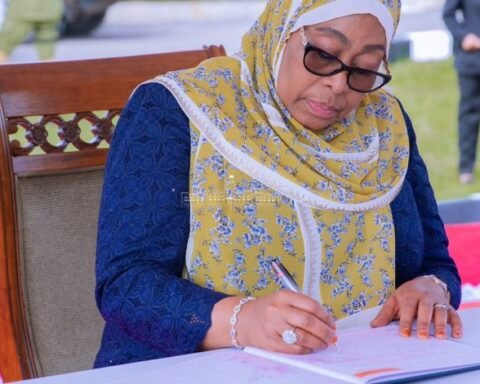Tanzania is making significant strides in its commitment to environmental sustainability and public health by transitioning its correctional facilities to clean energy sources.
On August 30, 2025, Prime Minister Kassim Majaliwa, representing President Samia Suluhu Hassan, inaugurated the nationwide clean cooking energy programme at Karanga Prison in Moshi, Kilimanjaro Region. This initiative aims to replace traditional cooking methods with sustainable energy solutions across all 129 prisons in the country.
The shift to clean energy is part of Tanzania’s broader strategy to phase out the use of harmful fuels such as firewood and charcoal, which have been linked to respiratory diseases and environmental degradation. Prime Minister Majaliwa highlighted that a single prison could consume over 100 tonnes of charcoal annually, a cost that is expected to be reduced by more than 50% through the adoption of clean energy technologies.
The Rural Energy Agency (REA) is playing a pivotal role in this transition. In collaboration with the Tanzania Prisons Service, REA is facilitating the installation of 126 biogas systems, 56 liquefied petroleum gas (LPG) systems, and the purchase of alternative charcoal and cooking stoves. Additionally, REA is providing training to 280 prison staff to ensure the effective operation of these new systems.
Also Read; ACT Wazalendo Expels Member Amid Election Dispute
This initiative aligns with Tanzania’s National Clean Cooking Energy Strategy, which aims to provide 80% of Tanzanians with access to clean cooking energy by 2034. The government’s commitment to this goal is further demonstrated by a substantial budget increase for the Ministry of Energy in the 2025/26 fiscal year, expected to enhance efforts in expanding electricity access and promoting clean cooking solutions.
The transition to clean energy in prisons is expected to have far-reaching benefits. It will not only improve the health and well-being of inmates and staff but also contribute to environmental conservation by reducing deforestation and carbon emissions. As the programme progresses, it is anticipated that other public institutions will follow suit, furthering Tanzania’s commitment to sustainable development.
This nationwide clean energy initiative serves as a model for integrating sustainable practices into public institutions and underscores the importance of collaborative efforts between government agencies, private sector partners, and communities in achieving environmental and health objectives.







